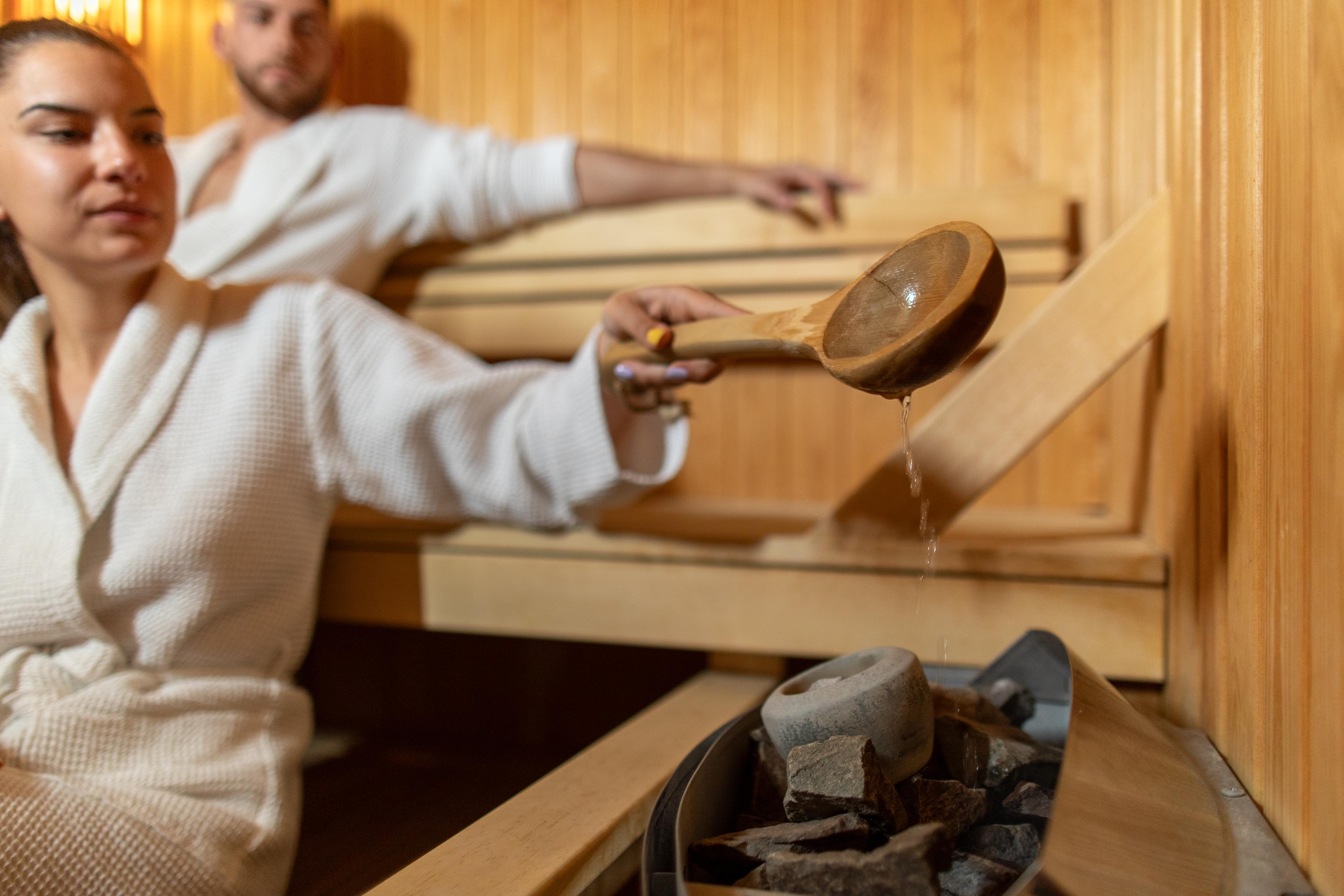Health Benefits of Using a Sauna
A Healthier Michigan
| 3 min read

If the mention of a sauna has you envisioning a hot room somewhere far away in a frozen Nordic landscape, think again. Both dry saunas and steam rooms are being embraced by wellness centers and people searching out day-trips or even at-home spa experiences. Some people have been sauna devotees for years. Others are new to the experience and still more are probably curious about it - how does being in a superheated environment feel and what does it do for your body? Saunas actually have several health benefits.
What is a sauna experience like?
Saunas are small, cozy rooms that are typically heated via wood or electric to reach a high temperature. The exact temperature depends on the individual sauna, but most will hover around 185 degrees. Saunas are set to a level that has people breaking out in a sweat within a minute or two of entering the room. Any breath being drawn in through the nose or mouth will feel very hot when it fills your lungs.
A sauna room is usually very sparse. Wooden walls and a few benches built into the space are often all you will see. There is also usually a hot rock holder with a water-filled bucket and ladle. Dry heat is the hallmark of most saunas, but those using one will sometimes ladle water over the hot stones to release a little moisture into the air. Some people also bring a wet towel or washcloth into the sauna to put over their face or drape across the back of their neck.
Sauna numbers on the rise
The sauna concept dates back a couple thousand years in places like Finland, Scotland and parts of Asia. Across the globe, the number of saunas being purchased is on the upswing. By 2025, the combined global sauna and spa market is expected to hit $4.6 billion, according to an industry forecast. This represents a 5% increase projected between 2021 and 2025. While some of this sauna growth is in commercial saunas, like those available at health clubs and spas, another part of this market increase is because more people are purchasing smaller, portable saunas for personal use. These little buildings are often just the size of a yard barn and can be set up in a backyard.
Health benefits of saunas
The trend toward more saunas has a lot to do with how good the experience makes people feel, and the health benefits associated with regular sauna use. The key to getting the most out of your time inside a sauna is using it safely and remaining aware of how your body feels when you’re sweating in the hot zone.
According to Harvard Medical School, the benefits of sauna use start with the body’s physical reaction to the extreme heat. The pulse rate increases, the blood vessels dilate, and then the amount of blood being pumped by the heart can double.
Sauna users can experience:
- A deep feeling of physical and mental relaxation
- Improved circulation
- Release of tension in muscles
- Feelings of happiness
- Improved energy levels after a sauna
- Relief from stiff joints or arthritis pain. One study also showed lower back pain improved after spending time in a sauna.
Sauna safety guidelines
There are risks associated with any high-heat environment. Before you use a sauna or steam room, check with your healthcare provider. Harvard shares these guidelines to help create a safe sauna experience:
- Don’t stay in a sauna for more than 20 minutes at a time.
- Allow your body to cool down gradually after you leave a sauna.
- Drink a couple glasses of water to replenish the fluids lost by sweating.
- People with high blood pressure may be at risk in a sauna.
Photo credit: Getty Images





